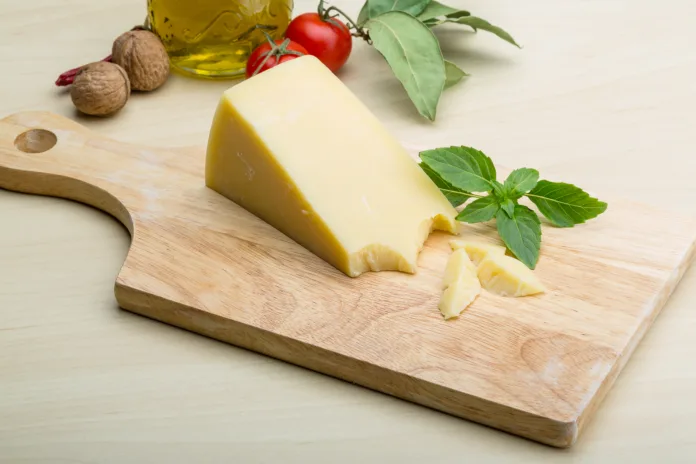Shocking revelation leaves many realizing the unpleasant truth behind the production of Parmesan cheese
In a surprising revelation, a significant number of people are discovering the unsettling truth that Parmesan cheese isn’t suitable for vegetarians. Parmesan, also known as Parmigiano Reggiano, is a renowned Italian hard cheese produced from cows’ milk, primarily in the provinces of Parma, Bologna, or Reggio Emilia.
However, the shocking realization comes from the coagulation process used in Parmesan production, involving the enzyme chymosin. This enzyme, crucial for the cheese-making process, is introduced through rennet, derived from the dried stomach of slaughtered baby cows.
The process unfolds as follows: after a calf is killed, its stomach is removed and left to dry. The desiccated stomach is then cut into cubes and added to the cheese mixture. Once incorporated, the mixture coagulates, resulting in the formation of Parmesan cheese.
Embed from Getty ImagesThe critical aspect is that Parmesan cannot be granted its title unless it contains calf rennet and includes cow’s milk and salt in the production. Unfortunately, this unsettling reality extends to other popular cheeses like Grana Padano, Gorgonzola, Manchego, Emmenthal, Camembert, Gruyère, Pecorino Romano, Vacherin, and Bucheron, which also use calf rennet.
The European Union stipulates that cheeses marketed as Parmesan must adhere to specific regional and production criteria.
The revelation has left many individuals shocked and reconsidering their dietary choices, with some expressing their newfound awareness on social media. Many are now grappling with the unsettling reality that their beloved Parmesan isn’t as vegetarian-friendly as they once believed.
This disclosure has sparked conversations about the use of animal products in various food items, prompting some to reconsider their dietary preferences and explore alternative, plant-based options.
